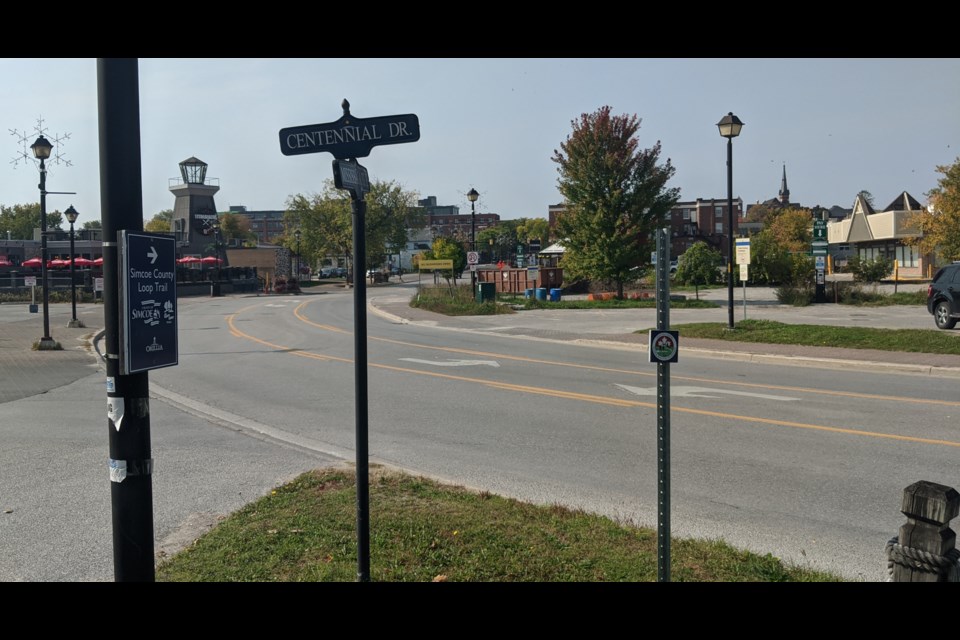Phase two of the city’s Centennial Drive Area Improvements Project is estimated to cost about $17.8 million. As a result, city council has decided to finance up to $10.7 million of the project’s cost through long-term debt over the next 20 years.
The multi-year, three phase project plans to reform the waterfront area and provide servicing for future development. In total, the project will cost the city an estimated $23.1 million, and includes the reconstruction and realignment of the Mississaga Street East/Centennial Drive/Canice Street corridor from Front Street North to Brant Street East.
The project will also include the provision of utilities for surrounding future development, burying the existing overhead power lines between Mississaga Street to Tecumseth Street, and removal of the trunk sanitary sewer.
“This is really important to our tourism industry as well as to protecting our park,” said Coun. Ralph Cipolla at council Monday evening. “The way the study went and everything else, I think it's really important, and I hope everybody supports this because this will be a great improvement to our Couchiching Beach Park.”
The contract for phase two is expected to be awarded in June, with construction anticipated to be complete by the end of 2022.
A staff report cited “financial challenges within some of the reserve forecasts” as a primary reason to finance $10.7 million through long-term debt, adding that “debt financing has been considered to assist in smoothing these costs over time to relieve pressure on reserves.”
As of Dec. 2021, the city’s external debt sat at $3.8 million. According to the staff report, $2 million of this debt (the last debt tied to the construction of the Orillia Public Library) is anticipated to be paid off by the end of 2022, with the remainder scheduled to be paid by 2026.
“The timing for issuing new debt is good as it will replace the current balance maturing,” the staff report stated.
The staff report called for council to approve financing the project through long-term debt as soon as possible, due to significant interest rate increases recently rolled out by the Bank of Canada.
“Staff are hoping for a 20-year term rate in the 4% range which would yield annual payments around the $800,000 mark. The recent Bank of Canada increases were a surprise to the industry, as many industry experts were of the opinion that COVID-19 and the war in Ukraine would delay significant interest rate adjustments,” the staff report stated.
“However, increases in March and April were aggressive with indications of further increases over the next five meetings in 2022 to move the overnight rate from 1% to 2.25%. This is the most aggressive rate change trend since the 1980’s … it would be prudent to lock in the city’s rate as soon as possible to minimize the impact of any further interest rate risk," recommends staff in the report.
About $7 million of the project’s phase two costs will be covered through grants, with the remaining balance being paid through the city’s water and wastewater reserves and development charges.
Council originally approved financing a portion of phase two through long-term debt in the 2022 capital budget.
The city will submit an application to the Ontario Infrastructure and Lands Corporation (OILC) to request financing for the project.
“Staff have contacted three financial institutions and determined OILC provided the most competitive rates,” the staff report said.
